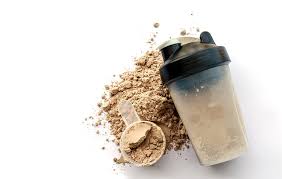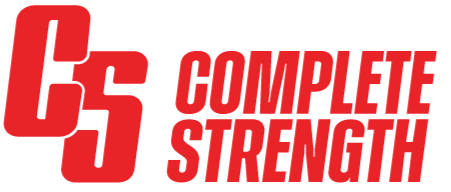Why You Should Use Protein Powder?
Share

I am sure everyone as heard the term ‘protein shake’, well what exactly Is it? In this blog we will discuss the important role of protein, the types of protein available & the benefits it as for athletes, bodybuilders but also the general population around the world to help increase intake of what is the most important macronutrient on the planet.
Protein is a key micronutrient which plays a key part in stimulating muscle protein synthesis, muscle, skin & tissue repair & hormone production. All are these are made up of amino acids which are produced when protein is digested in the body & broken down allowing the body to grow & repair. Protein as proved to help with improved body composition due its effect on repair & protecting muscle tissue particularly whilst in a phase of calorie deficit.
Protein however is often the least consumed of the three micronutrients, although various studies have shown why it should be the 1st on everyone’s list as not consuming enough protein can lead to adverse effects on health including;
Muscle loss
- When you don't get enough protein, your body breaks down stored lean muscle to help build and repair muscles. This can lead to muscle weakness and loss of muscle mass...
Fatigue
- A lack of protein can lead to fatigue and weakness. This is because protein is a macronutrient that provides energy to your body.
- A lack of protein can also lead to anaemia, which can lead to tiredness & fatigue.
Hunger
- Protein helps you feel full between meals. When you don't get enough protein, you may feel hungry more often.
- It is key for stimulating muscle protein synthesis through the breakdown of amino acids. Studies have shown humans should look for a protein feeding every 3-4 hours & even less for bodybuilders
Brittle hair and nails
- Protein is important for healthy skin and nails. If you don't get enough protein, your hair and nails may become brittle.

What Is Protein Powder?
Protein powder is a convenient & easily digestible way of achieving your protein goals everyday & can be taken on the go rather than spending time preparing food when you have a busy lifestyle.
Protein powder can be used by anyone but is a key supplement for athletes & bodybuilders who want to significantly increase their daily protein intake. Protein supplements are not just exclusive to fitness athletes, the general population find great ease & convenience in using a protein supplement to increase their overall intake if they are not consuming enough meat, fish & poultry to obtain it from their standard diet.
There are a variety of types of protein including Whey, Whey Isolate, Casein, Soy, Hemp & plant protein to name a few all which can be used with some having significant impact depending on when they are consumed.
For athletes & bodybuilders alike either a Whey or Whey isolate would prove most popular with vegan or vegetarian athletes using a more suitable alternative such as complete strengths Vegan protein.
Which type of Protein Should I Take?
The most used form of protein is currently:
· ‘Whey’ which is a Whey Protein Concentrate which takes about 2 hours to digest, with a protein content of 70-80%. This will help keep individuals satiated between meal timings when used as a snack or can be mixed/blended with other ingredients containing other macronutrients which can create a ‘meal replacement shake’.
· Whey Protein Isolate generally as a higher protein content around 90-95% and digests in about 1 hour. This is often a lower fat & carbohydrate alternative to whey due the fact its processed for longer & often the preferred choice of protein for those wishing to avoid any digestive issues.
· Whey Protein Hydrolysate – Pre-digested for quicker absorption, typically digesting within an hour. Generally, the most expensive form of protein, however one which is highly appreciated in bodybuilding circles due to how quickly its absorbed & very easy for the body to digest
· A medium digesting protein is a protein that is typically digested within 3 to 3 ½ hours and includes several alternative proteins such as whole egg protein, egg white protein, pea protein and rice/soy protein. These are all popular types of protein for those with specific dietary requirements.
At Complete Strength, we have both whey isolate and whey concentrate protein powders available in a variety of mouthwatering flavours specifically designed to help you increase your protein consumption on your journey to your goals. ‘Complete Strength Whey Isolate’ contains over 25g per serving & less than 1g of fat and is a real market leader in amount of protein per 100g. Available In both 2kg tubs, you can try it in flavours including salted caramel, cookies & cream, chocolate & sticky toffee pudding!! Our ‘Complete Strength whey concentrate’ is also available 2kg tubs in a variety of flavours including cinnamon cereal, chocolate coconut & chocolate orange. Whey concentrate is often more affordable, however at complete strength there is no deviation in quality & our complete whey still packs over 22g of protein per serving with less than 3g of fat & carbohydrates.
How Should You Use Whey Protein in Your Training Routine?
If you already consume a high-protein diet, you won’t necessarily need to use a protein supplement - speak to your personal trainer/Coach or medical professional if you require advice. The preferred timings of protein consumption are often around the workout either pre workout to ensure the body is well fuelled to perform high intensity exercise or post workout to repair muscle tissue form breakdown which occurs during the workout. The magic ‘anabolic window’ is said to be post workout when the body insulin sensitivity is high & blood sugars have dropped & the body is ready to absorb all micronutrients to start the recovery process.
Higher protein diets have been shown to help prevent catabolism ‘the breakdown of muscle tissue’ leading to loss in muscular size & function. Many people opt to use protein powders in their breakfast or with a pre-bed meal as this will again help the body avoid catabolism as it comes out of or enters a period of fasting whilst were asleep. As highlighted protein supplements can be used as meal replacement or as a snack between meals at any time of the day to increase your overall protein intake.
Often Protein powder is added to oats, yoghurt, desserts or even in coffee!! Why not try adding it to complete strengths ‘Cream Of Rice’ for that perfect protein & carbohydrate pre-workout meal.


How Much Protein Do I Need In My Diet?
The amount of protein you need to fuel your body each day will depend on your goals; you’ll need to consume more if you’re on a high intensity exercise regime, in a period of calorie deficit or you have reduced the intake of your carbohydrates & fats. If you are wanting to gain weight or try to increase muscle growth, then you may opt for a more than optimal amount of protein per day.
The Recommended Dietary Allowance (RDA) for protein is a modest 0.8 grams of protein per Kilo of body weight, or 0.36 grams per pound. The RDA is the amount of a nutrient you need to meet your basic nutritional requirements. Many fitness enthusiasts & bodybuilders will aim from anything from 1 to 2 grams of protein per lbs of protein per day depending on their phase of training & current caloric needs to ensure they are optimising muscle protein synthesis signalling, muscle recovery, growth & retention.
Why Complete Strength?
Complete Strength protein powders are made for athletes. Designed with real results in mind and made using high-quality, patented ingredients, you can be sure you’re choosing the athlete’s choice produced to the highest quality.
At Complete Strength we offer a variety of supplements to support all goals, often athletes will choose to use other supplements such as essential amino acids to increase their intra-workout protein intake, Highly Branched Cyclic Dextrin to increase their carbohydrate intake to complete their protein intake & Glutamine which is an essential amino acid within the body to ensure they are best positioned to train & perform at optimal level & recover to maximum capacity.
References;
Health benefits of protein powder
